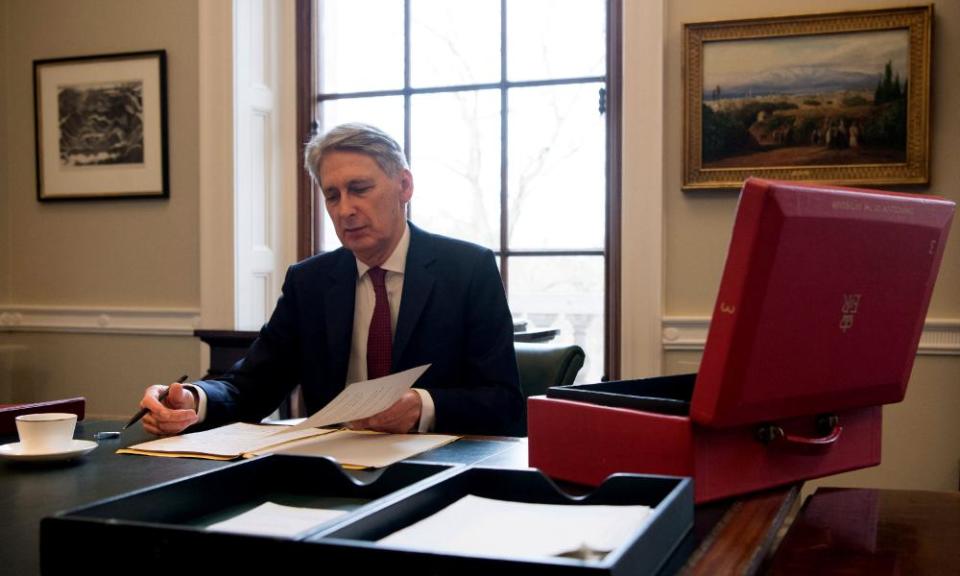Hammond was right to raise tax for self-employed, inquiry to say

The chancellor was correct to announce a tax increase on the self-employed before dramatically withdrawing from his main budget pledge, an independent inquiry into modern employment practices is likely to conclude.
Matthew Taylor, the chief executive of the Royal Society for the Encouragement of Arts, Manufactures and Commerce (RSA) who has been appointed by the prime minister to lead the review, told MPs on Wednesday that he supported Philip Hammond’s since aborted budget announcement and would look to go further by recommending a levelling of the taxation between different classes of workers.
Appearing in front of the Commons work and pensions committee, Taylor said: “It is likely that two of the strategic shifts we will advocate [in the final report due in June] is that over time we will need to move towards a more consistent way of taxing labour.” He said that over a period of years “we need to get to a position where it doesn’t really matter how you are employed, the system treats you in a very similar kind of way.
“The second part is that we need to improve the support and entitlement that we provide to self-employed people ... These are changes we need to accomplish over the next few years because I think that self-employment is likely to grow.”
Taylor added the moves would take time and that short- to medium-term tax changes would also be required in order to protect the public purse.
“That’s why I was supportive of the measure proposed by the chancellor in the budget because I felt they were a necessary short-term move to reflect that entitlements to self-employed people have grown,” he said.
The comments came after Hammond performed a U-turn from the one standout announcement in his first spring budget speech, following a revolt by backbench Conservative MPs opposing national insurance increases on the self-employed.
The committee also heard from Damian Hinds, the employment minister, who confirmed that self-employed people – who now number almost 5 million – cost the welfare system more than employed people in terms of tax credits and old age benefits on average.
He also said jobseekers would not be penalised for turning down work on self-employed terms, as he warned potential gig economy workers to “have their eyes open” when signing up with companies asking for cash commitments in exchange for jobs.
Hinds’ comments revealed the government’s concern over aspects of the boom in self-employed working, a trend that has come to the public’s attention largely because of the growth in companies using self-employed workers, such as the minicab app firm Uber, courier companies Hermes, DPD and UK Mail and takeaway delivery company Deliveroo.
This month, the Guardian revealed how DPD and UK Mail both charge their self-employed couriers if they are sick and cannot find cover. Hermes and Uber both require drivers to pay for their own vehicles, including fuel, hire and insurance, with no minimum guaranteed earnings, which in some cases has seen workers taking home below the national minimum wage.
“[It] is really important that people have their eyes open and they know of the downsides as well as the earnings potential of any of these models and particularly if there is some cash commitment they are making,” Hinds said.
Self-employed workers do not benefit from sick pay, holiday pay or auto-enrolment into the pensions system. Neither do the companies employing them have to pay national insurance contributions.

 Yahoo Finance
Yahoo Finance 